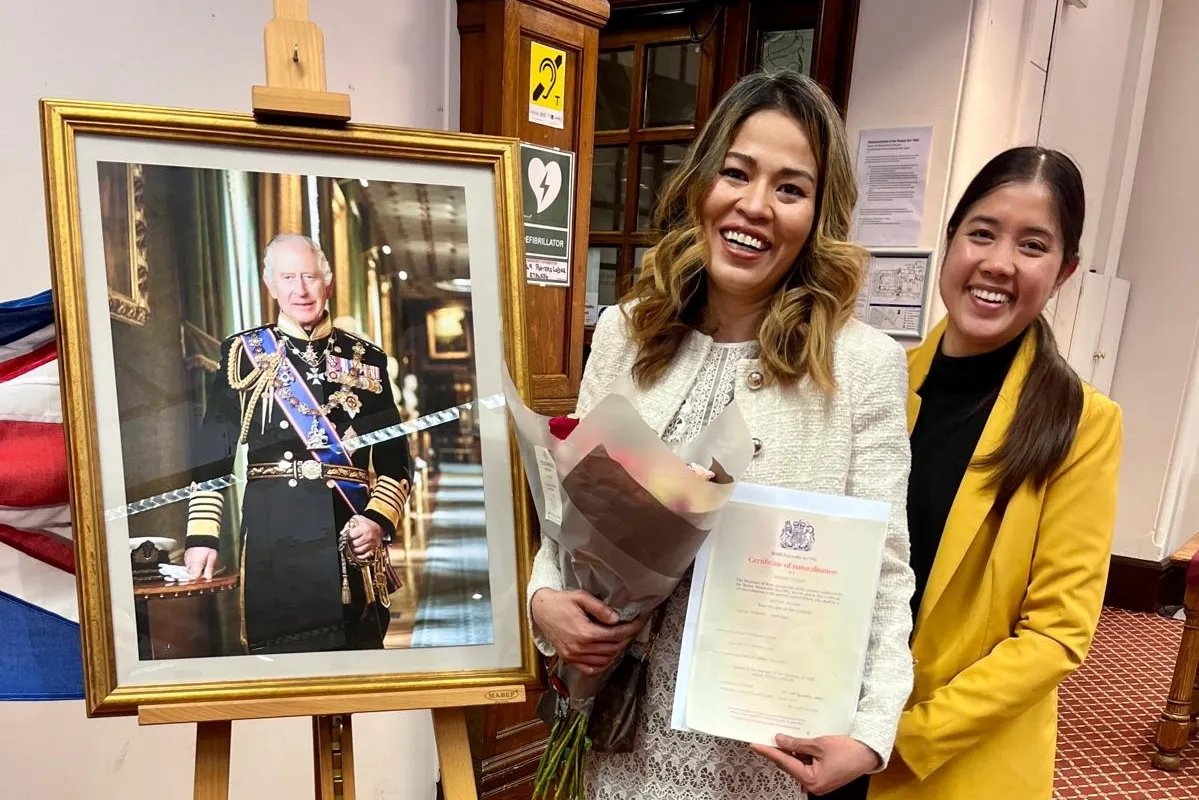“Your first duty as a new British citizen is to form an orderly British queue,” announces deputy registrar Amelia Sweet at the end of an hour-long ceremony in which 46 new Sheffielders have been formally granted their citizenship. Around the room, people from all corners of the globe film the moment on their phones, their friends’ and relatives’ faces illuminated by the glow of the screen. The queue is to get a photo taken next to a large framed photo of King Charles III. Everyone in the room wants one.
Every year, hundreds of people go through this ceremony in Sheffield; last year, the figure was 835. But these aren’t new arrivals. In most cases, they are people who have lived in Sheffield for many years. Getting British citizenship is a long process that can take decades. One woman from Thailand, who is here accompanying a friend, got her citizenship a few years ago — it took her 23 years.
Perhaps unsurprisingly for something that can take so long, many people make the most of it when they get here. “We’ve had people turn up dressed in red, white and blue regalia,” says deputy registrar Denise Goddard. “Some people even bring gifts for the staff.”
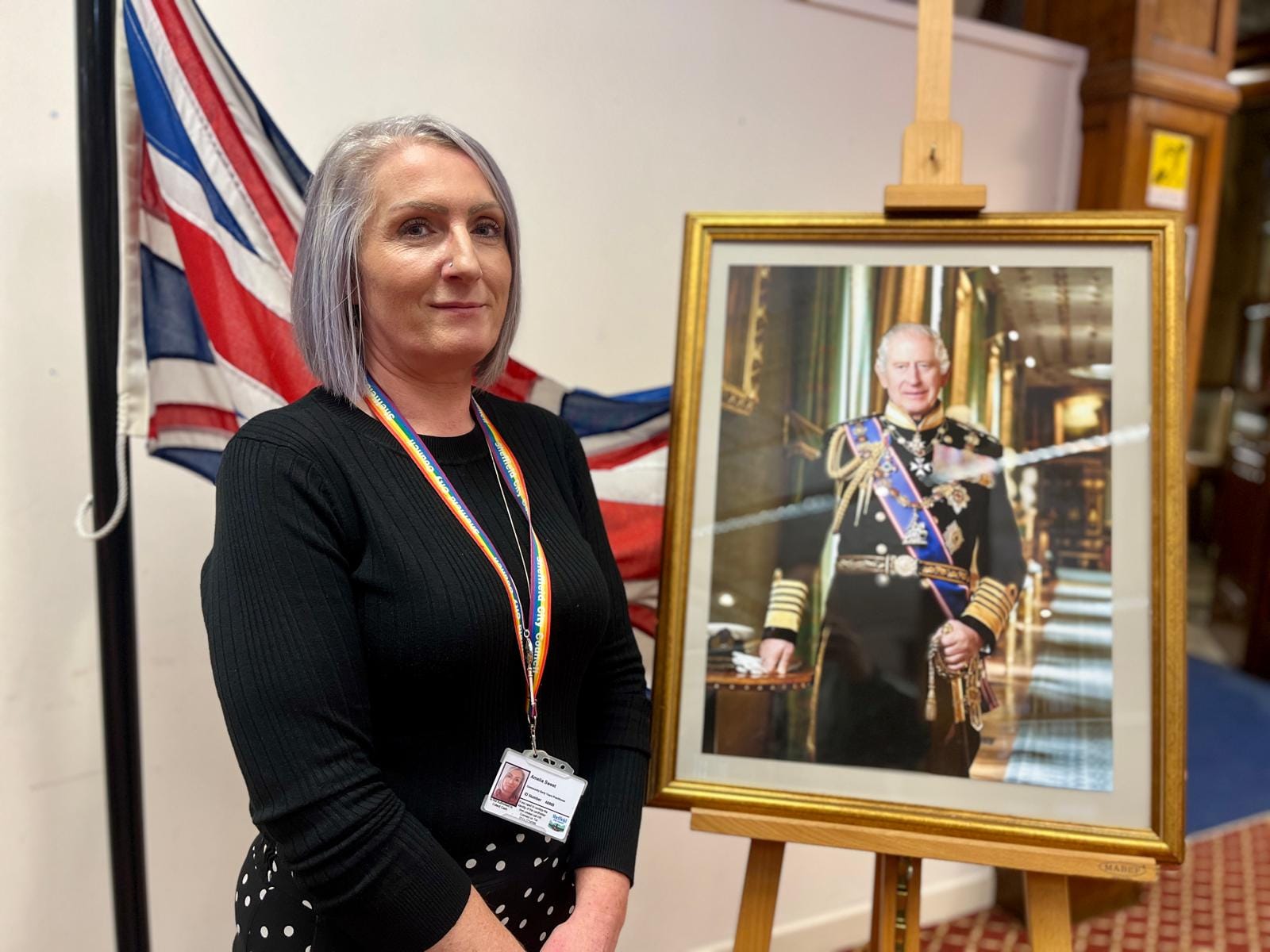
The ceremonies take place throughout the year, usually weekly, but for the past month that’s increased to twice weekly due to high demand. As well as those granted citizenship today, another 40 were given theirs on Tuesday. Once the Home Office has processed an application, the certificates are sent to Sheffield Council, which is responsible for organising the ceremonies. If the ceremony is not completed within 90 days, the prospective citizen has to go through the process again, with added costs, hence the council’s recent increase in frequency. Attendance at a ceremony is compulsory and requires the person to take the oath of allegiance and pledge of commitment — the same that members of the Armed Forces and MPs have to read.
First, though, you must pass a citizenship test. Intrigued about what this entailed, I took a sample test before the ceremony. Without wanting to blow my own trumpet, I aced it — 21 out of 24 correct. The questions aren’t that hard. Who captained the World Cup-winning team of 1966? Who was given the title Lord Protector? I did get a few wrong. For "what did Sir Frank Whittle invent in the 1930s?" I chose ‘radar’, rather than the jet engine. The Living in the UK test has come under fire in recent years. In 2018, the then Home Secretary Sajid Javid derided it as little more than a “pub quiz”, while in 2022, Baroness Hamwee, chair of the House of Lords’ Justice and Home Affairs Committee, said it was "no joke that the question most identified with the UK test related to the appropriate action to take after spilling a beer on someone at the pub. The test is not respected in the UK or abroad.”
However, the test is only one small part of the process. Rather than a test of general knowledge about British history or the vagaries of pub behaviour, getting British citizenship is really a test of endurance and finance.
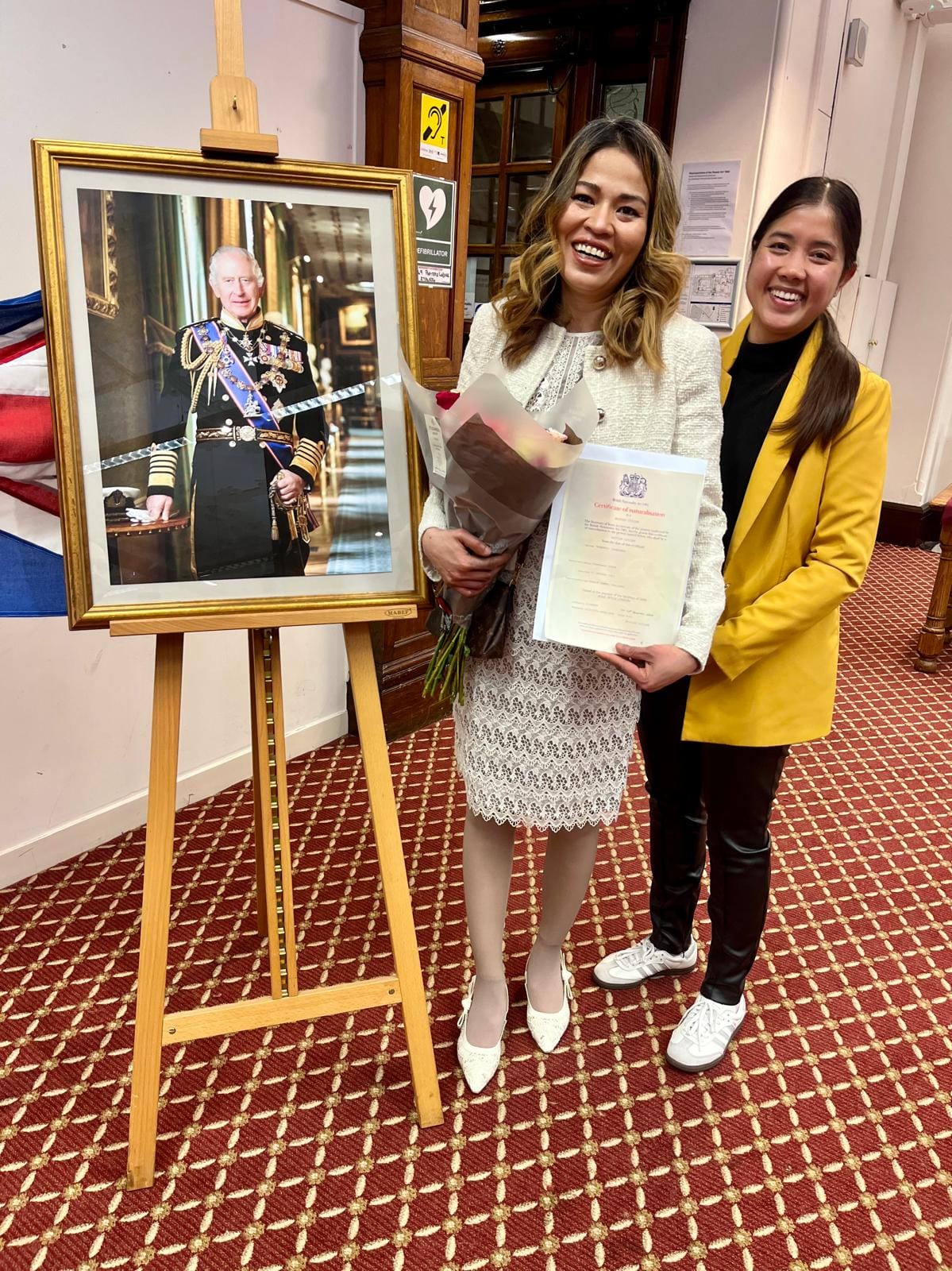
The ceremonies are organised by Sheffield Council’s register office (the same team that looks after births, marriages and deaths), whose Deputy Superintendent Registrar John Albinson tells me that everyone’s journey to this point is different, and some can be waiting many years for their citizenship. There are five and ten-year routes, and during that time prospective citizens must go through multiple visa processes and immigration statuses. When they finally receive their certificate, they have a real sense of achievement. “Some people do get quite emotional,” Denise Goddard adds.
When I walked into the Town Hall earlier, I was ushered to the back of a room on the ground floor. Attendees are arranged to face a Union Jack that sits alongside the aforementioned photo of the King. The ceremony is made slightly incongruous by the fact that it’s conducted in a broad Australian accent. Amelia Sweet has lived in Sheffield for 19 years but has lost none of her classic Aussie “strine” accent. She says that as well as being the final stage of the process, the formal ceremony helps make what is a largely legalistic change more tangible. “The look on people’s faces and the pride when they get that certificate is just beautiful,” she says.
Sweet begins by listing the 20 countries people here today have come from: Sri Lanka, Libya, Gambia, the Netherlands, Nigeria, Sudan, Thailand, India, Eritrea, Pakistan, Vietnam, Kenya, Tunisia, Syria, Iraq, Iran, China, Hong Kong, Albania and Turkey. “How amazing,” she says as she breathlessly reaches the end of the list. “Ooh,” the audience responds, like an episode of Play Your Cards Right.
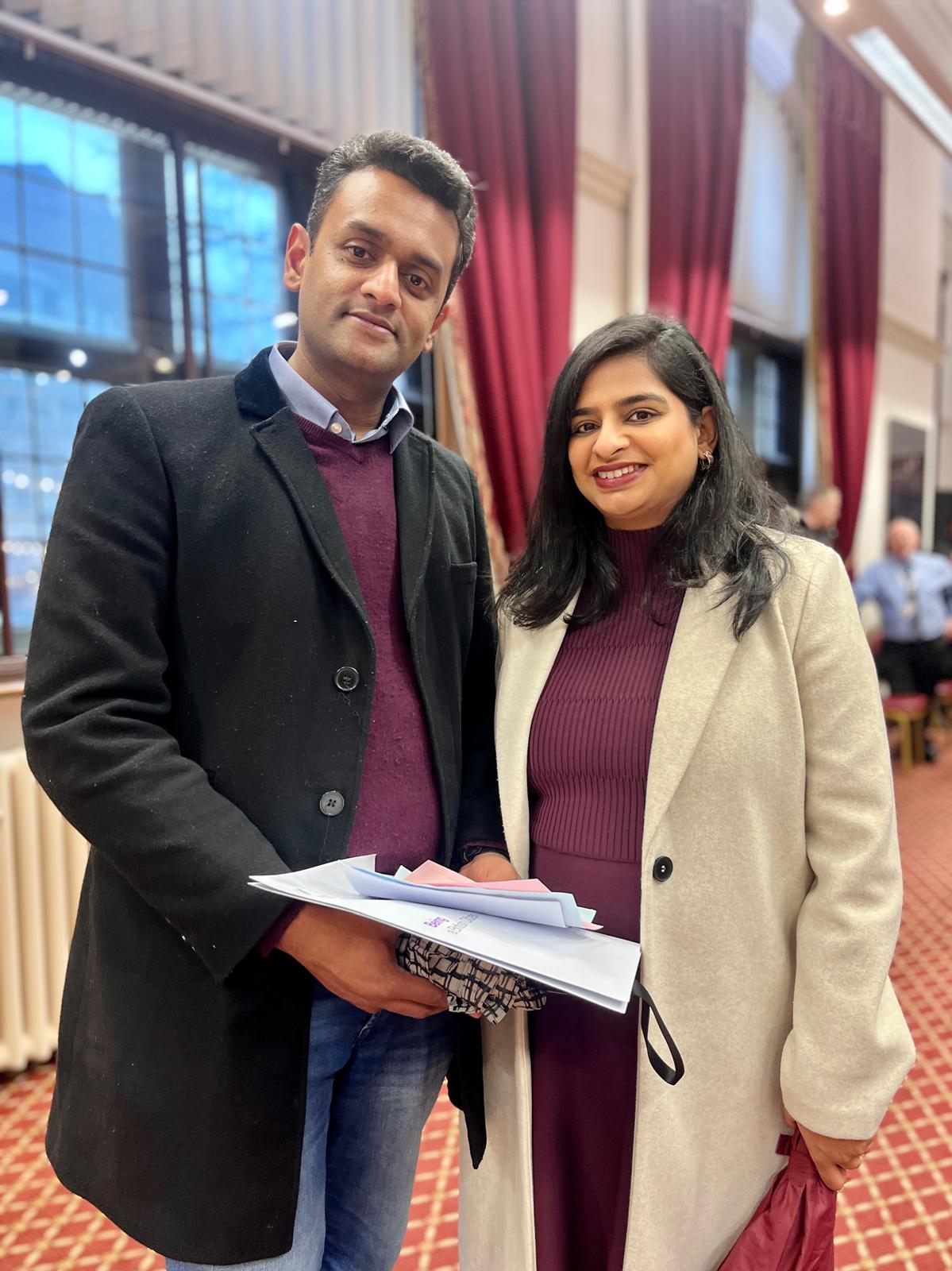
After the ice-breaker, Amelia talks about the importance of the ceremony. She describes the process as “a rite of passage" and “the realisation of a dream.” It’s a well-rehearsed list, but it doesn’t come across as platitudinal. Other than the occasional scream from a baby, the room is attentive and quiet. Up next is Amy Cooper, one of the Lord Lieutenant of South Yorkshire’s deputies. “Sheffield is a truly remarkable place with history, innovation and a deep sense of community,” she tells the audience. “It also has two professional football teams, although be careful which one you choose." Even in citizenship ceremonies, Wednesday get dragged.
Many people have come dressed up. A middle-aged man stands in a new black suit that looks a few sizes too big for him. Others are in clothes you might go out in. One man in a pair of check trousers and a snazzy shirt could easily be off down West Street after the ceremony. After the speeches, it’s time for oath and pledge, before the new citizens are individually called to get their certificates. Like a graduation ceremony, as each person is called, they get a round of applause.
After the ceremony, I catch up with a couple of the newest Sheffielders. Srinidhi Veeraraghavan is originally from Bangalore in India and came to the UK in 2015. He works in IT and now lives in Handsworth with his wife Prathiba, who also received her citizenship today, and their children. It has taken them six years to get to this point, five years to get permanent residency and one extra year for citizenship. In all, it has cost them each £3,000 to go through the process.
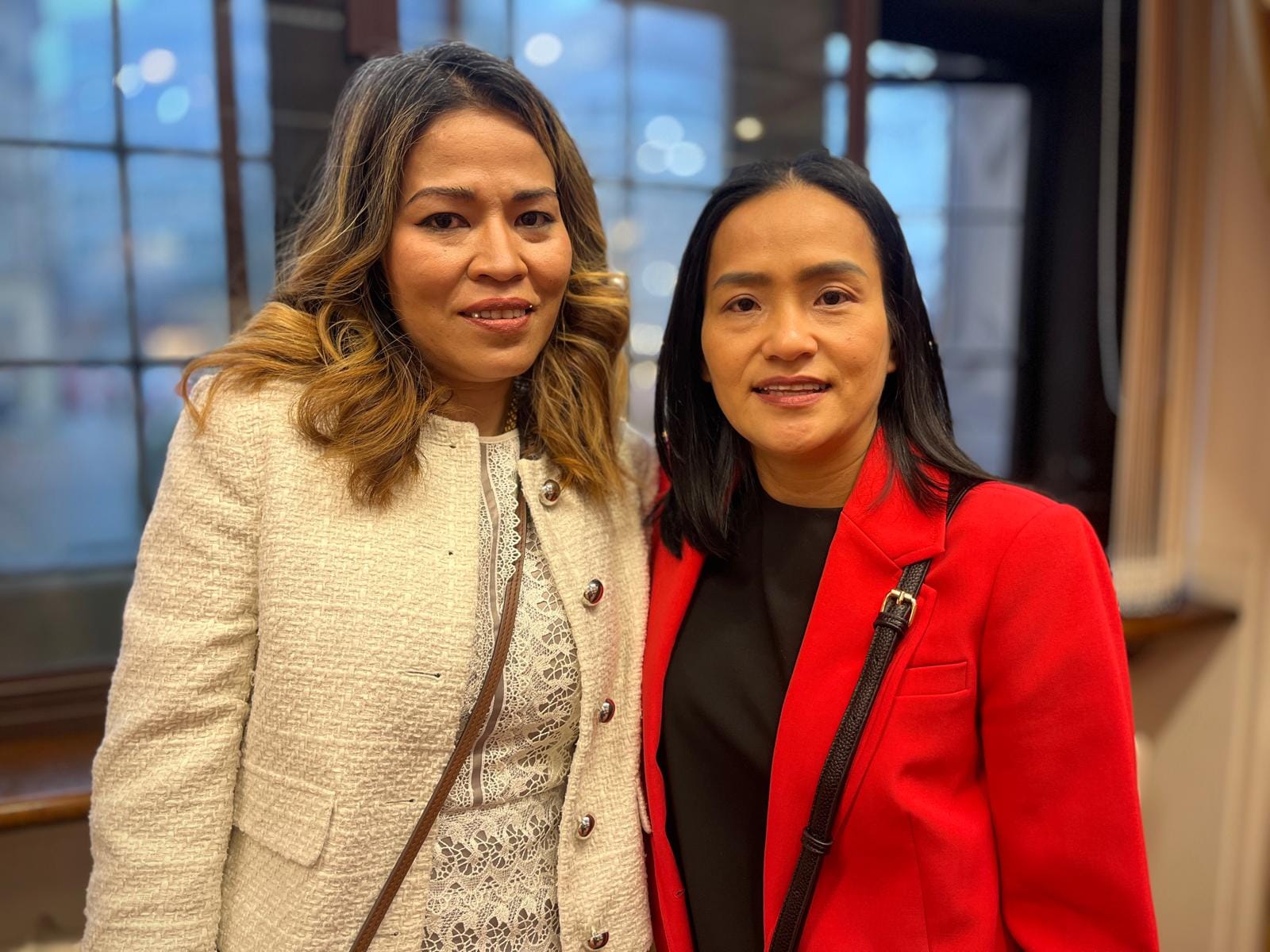
Asked why people go through a process that can take such a long time and cost thousands, John Albinson says the main reason is security. “You can stay with an indefinite leave to remain status but it’s in most people’s interests to get citizenship,” he says. “You get full access to the NHS and the benefits system. And you can’t be removed for doing something wrong. You’re a British citizen.”
Nattaya Cardwell, 43, is also originally from Thailand and lives in Deepcar with her husband and their two young girls. I was under the impression that you would get citizenship simply through marriage, but that isn’t the case. People are allowed to come here on partner visas, which need to be renewed every two and a half years. Only then can you apply for indefinite leave to remain and after that citizenship. It has taken Nattaya 11 years to get her citizenship, meaning she has had to renew her visa four times. Her husband also works abroad regularly, meaning she has had to get a European Schengen visa to visit him. Nattaya and her husband are happy, but the overwhelming feeling seems like one of relief. She is here with her friend Chaweewan Roberts, also 43, who runs a Thai food business. She tells me having citizenship will make it much easier for her as a businesswoman.
Iqra Qasim, 24, from Pakistan, is here with her sister-in-law Samina. Iqra is wearing a beautiful tan-coloured coat with a fur-lined collar especially for the occasion (when I ask her if it was expensive, she’s tight-lipped. “I got it in the sale,” she says). Iqra is currently pregnant and moved to the UK from the Kashmiri city of Mirpur five years ago when she married Samina’s brother. “It was lovely to see so many different people from so many different backgrounds,” Samina says of the ceremony. Still, they’re glad it’s over, as they’re starving. “We’re going to get some chips,” says Samina. “And she’s eating for two.”
Security might be the most important reason to get citizenship, but you can tell by the smiles on people’s faces and the number of guests they invite that it’s not the only one. Despite the wait, despite the costs, citizenship creates excitement and holds out hope for the future. For all its idiosyncrasies, the ceremony is a way of marking that, of making it real. Conferring citizenship takes different forms in different countries. In the UK we tell people to wait patiently in line to get their picture taken with a photograph of King Charles. It seems as good as any.
Comments
How to comment:
If you are already a member,
click here to sign in
and leave a comment.
If you aren't a member,
sign up here
to be able to leave a comment.
To add your photo, click here to create a profile on Gravatar.


